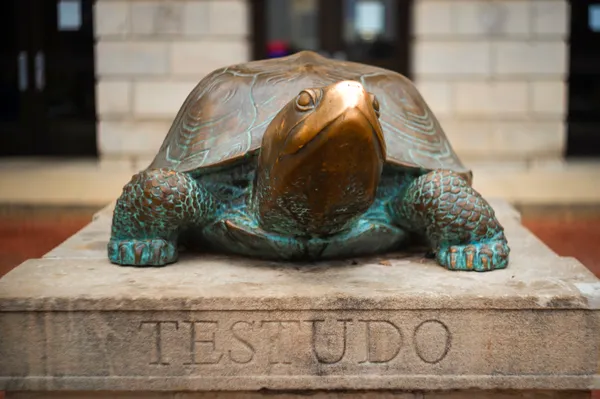Plan, Courses, and FAQs
How to Fulfill NSF RECR Training Requirements at UMD

University of Maryland, College Park (“UMD”) Plan for Fulfilling National Science Foundation (“NSF”) Responsible and Ethical Conduct of Research (“RECR”) Training Requirements
As required by the NSF, UMD has a written plan ("Plan") that details how the institution meets its obligations for fulfilling the responsible and ethical conduct of research (“RECR”) training requirements set forth NSF's Proposal & Award Policies & Procedures Guide. The Plan is available for download at the link below.

Requirements
At UMD, undergraduate students, graduate students, postdoctoral researchers, faculty, and other senior/key personnel who will participate in research supported by NSF must complete the IRC@UMD and UMD Research Security Office ("RSO") courses as indicated in the Plan (the 3 courses are listed below).
All 3 courses must be completed prior to the funding of any impacted award and then every 3 years thereafter (for the duration of the time that the individual is supported by NSF funding).*
(*Note: Individuals designated as senior/key personnel have an additional requirement to have taken the RSO course in the 12 months prior to the submission of any new proposal on which they are identified as senior/key personnel. The RSO will be responsible for increasing the frequency and population of the RSO course as needed to meet agency or project specific requirements.)


Courses
UMD has prepared 3 online courses for use by the campus community that when taken together fulfill the content/topic requirements of the Plan. The 3 courses include: IRC-R: Overview, IRC-R: Mentorship, and Research Security Training.
All 3 courses are hosted on ELMS-Canvas and learners must enroll through UMD’s Open Learning platform. Click on the direct links below to access and enroll in these courses (CAS Login Required).

Please reference our detailed instructions guide to help you through the process of enrolling in an IRC@UMD course. The guide also contains information on how to earn and access your course completion certificate.
IRC@UMD Course
This course is IRC@UMD's Integrity and Responsible Conduct in Research: An Overview of Related Topics, Best Practices, and Relevant Resources course. The topics covered in this course include: Rigor, Reproducibility, and Transparency; Mentor/Mentee Responsibilities and Relationships; Responsible Data Practices; Responsible Authorship and Publication Practices; Intellectual Property; Collaborative Research; Conflicts of Interest and Commitment; Research Security and Export Control; Human Research Participant Protections; Laboratory Animal Welfare; Research Safety; Safe Research Environments; Peer Review; Research Misconduct; and Social Responsibility.
For more information on this course and all other IRC@UMD courses visit the Integrity and Responsible Conduct Catalog in Open Learning.
IRC@UMD Course
This course is IRC@UMD's Integrity and Responsible Conduct in Research: Mentor/Mentee Responsibilities and Relationships course. For more information on this course and all other IRC@UMD courses visit the Integrity and Responsible Conduct Catalog in Open Learning.
UMD RSO Course
This course is offered by the UMD Research Security Office (RSO). For more information on this course, visit the UMD RSO training webpage.

FAQs
Who is subject to NSF’s RECR requirements?
Undergraduate students, graduate students, postdoctoral researchers, faculty, and other senior/key personnel who will participate in research supported by NSF need to complete the appropriate RECR training.
When did NSF's RECR training requirements begin?
RECR/RCR training had already been required for all undergraduate students, graduate students, and postdoctoral researchers participating in research supported by NSF funds since 2010. The 2023 revision to NSF’s existing training requirement mandated that institutions that submitted proposals to NSF on or after July 31, 2023, certify that they also have a plan in place to provide appropriate training and oversight in RECR for faculty and other senior personnel as well, with a focus on mentor training and mentorship. The subsequently issued PAPPG (NSF 24-1) continued these requirements, but modified “other senior personnel” to “other senior/key personnel.”
Who are "senior/key personnel" for the purposes of NSF supported research?
NSF defines “senior/key personnel” as follows: “Senior/key personnel include the individuals designated by the proposer/recipient organization and approved by NSF, who contribute in a substantive, meaningful way to the scientific development or execution of a research and development project proposed to be carried out with a research and development award. There are two categories of senior/key personnel as follows: 1. (co) Principal Investigator (PIs) – NSF does not infer any distinction in scientific stature among multiple PIs, whether referred to as PI or co-PI. If more than one, the first one listed will serve as the contact PI, with whom all communications between NSF program officials and the project relating to the scientific, technical, and budgetary aspects of the project should take place. ... Both the PI and any co-PIs, however, will be jointly responsible for submission of the requisite project reports. For purposes of [the PAPPG], when used throughout, the term Principal Investigator also includes Project Director (PD), and the term co-PI also includes co-PD. 2. Faculty Associate (faculty member) (or equivalent) – an individual other than the Principal Investigator(s) considered by the performing institution to be a member of its faculty (or equivalent) or who holds an appointment as a faculty member at another institution, and who will participate in the project being supported” (National Science Foundation, Proposal & Award Policies & Procedures Guide Exhibit II-3 (2024)).
When must I complete the requisite training?
Is the training required at the proposal or the award stage? Can the training be completed after the proposal is submitted, but prior to the actual acceptance of the award? What happens if an award is announced but an individual who is subject to the training requirement has not yet completed the training?
Faculty, senior/key personnel, undergraduate students, graduate students, and postdoctoral researchers participating in research supported by NSF must complete the requisite training prior to the funding of any impacted award. If the award is announced and the impacted individual has not completed the training, they must take it immediately before the award may be set up and the funds disbursed.
How frequently do I need to complete the requisite training?
Undergraduate students, graduate students, postdoctoral researchers, faculty, and “other senior/key personnel” who will participate in research supported by NSF must complete the IRC@UMD and RSO courses, included in the Plan, prior to the funding of any impacted award and then every 3 years thereafter (for the duration of the time that the individual is supported by NSF funding).*
(*Note: Individuals designated as senior/key personnel have an additional requirement to have taken the RSO course in the 12 months prior to the submission of any new proposal on which they are identified as senior/key personnel (National Science Foundation Important Notice No. 149 (2025)). The RSO will be responsible for increasing the frequency and population of the RSO course as needed to meet agency or project specific requirements (RSO Training).)
Can I still take CITI courses to satisfy the requirements of the UMD Plan?
No.
Researchers who completed the RCR/RECR training via CITI before August 2023 and have a certification that has not yet expired do not need to complete any new RCR/RECR training at this time. As that certification expires, however, they will need to complete the IRC@UMD training courses as described in the Plan.
Researchers who completed the CITI research security training previously administered by RSO between January 1, 2025 and September 11, 2025 and have a certification that has not yet expired do not need to complete any new research security training at this time.* As that certification expires, however, they will need to complete the UMD RSO training course as required by the Plan and the UMD RSO.
(*Note: Individuals designated as senior/key personnel have an additional requirement to have taken the RSO course in the 12 months prior to the submission of any new proposal on which they are identified as senior/key personnel (National Science Foundation Important Notice No. 149 (2025)). The RSO will be responsible for increasing the frequency and population of the RSO course as needed to meet agency or project specific requirements (RSO Training))
